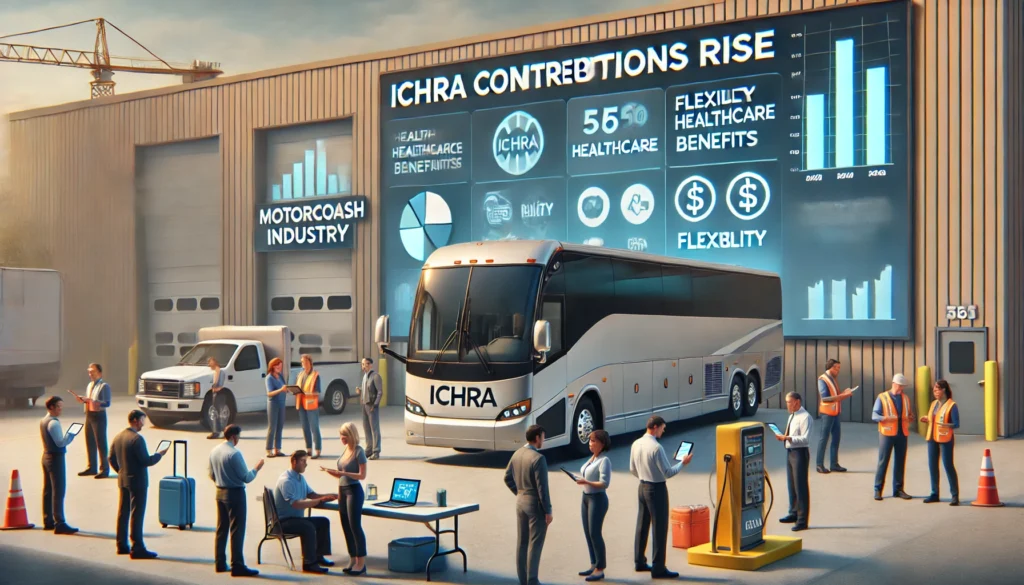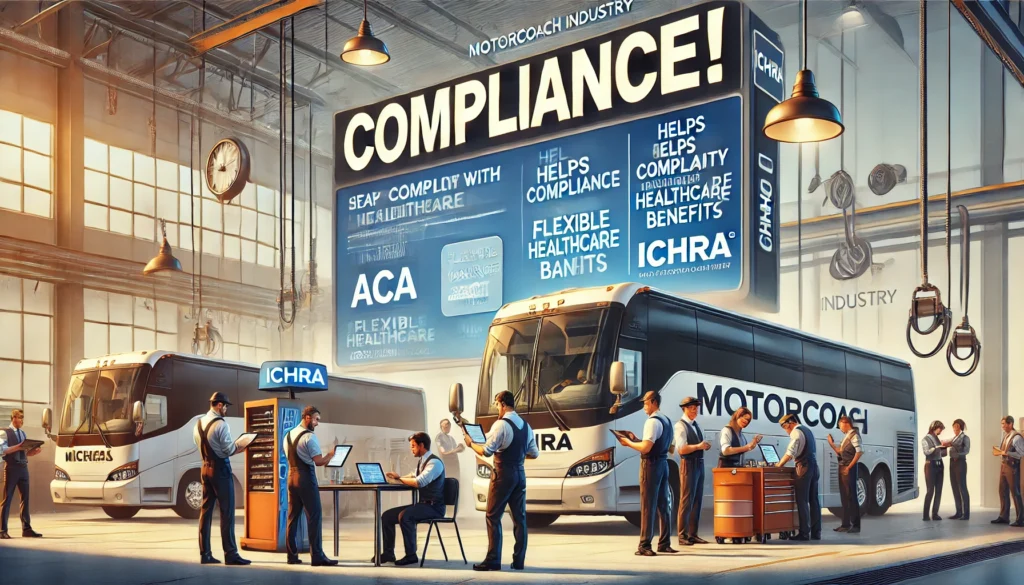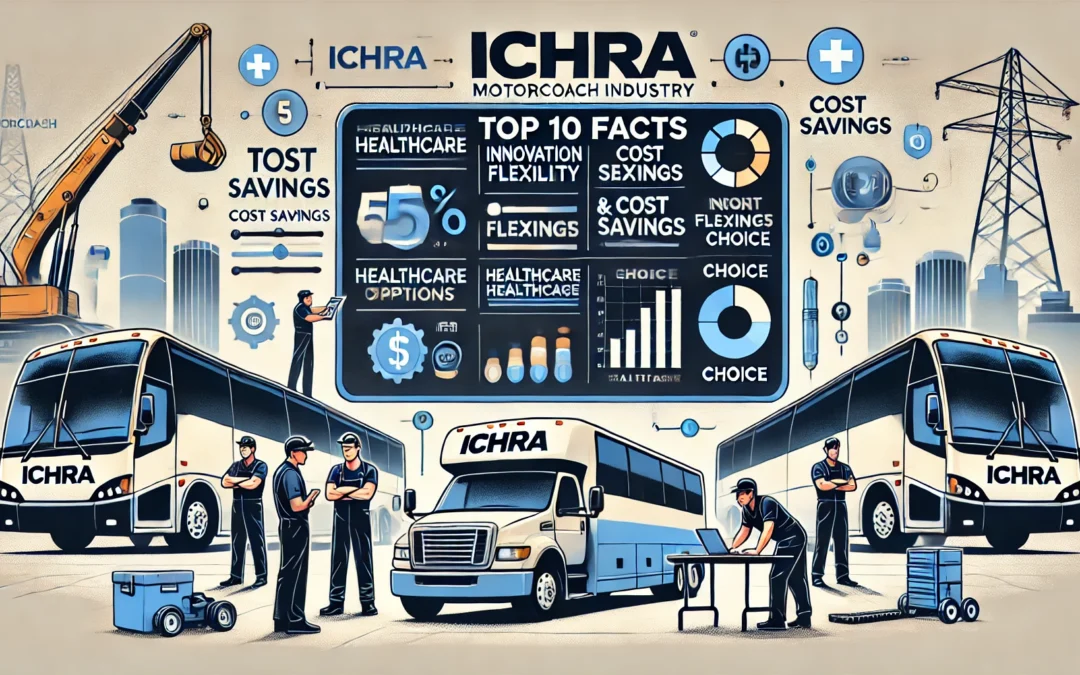The way employers offer healthcare benefits is undergoing a quiet revolution, and at the center of it is the Individual Coverage Health Reimbursement Arrangement, or ICHRA.
As we step into 2024, more businesses—especially small and mid-sized employers—are turning to ICHRA for its flexibility, cost control, and ability to empower employees with real choice.
In this article, we’ll dive deep into 10 powerful statistics and trends that show how ICHRA is reshaping the landscape of employer-sponsored healthcare. Whether you’re a business owner seeking smarter solutions or an employee curious about what ICHRA means for your health coverage, these insights will guide you through the rising impact of this transformative benefit option.
1. ICHRA Participation Expected to Double by 2024

ICHRA has been gaining steady momentum since its introduction in 2020, but the real growth surge is happening in 2023 and projected to carry through all of 2024.
Employers, particularly those in small to mid-sized businesses, are finding that the flexibility and predictability of ICHRA make it an ideal solution for offering healthcare benefits. With the ongoing challenge of rising healthcare costs, many employers are looking for alternatives to traditional group health plans, and ICHRA offers a defined contribution model that allows businesses to set a fixed budget for each employee. This helps employers avoid unexpected cost hikes.
The projected doubling of participation by 2024 reflects a shift in the marketplace, with employers adopting ICHRA to provide employees more freedom in choosing their health plans, while still maintaining control over spending. Learn More Here: Source.
2. Increased Adoption by Small Businesses

Small businesses, defined as those with fewer than 50 employees, have traditionally struggled with offering competitive health benefits due to high premiums and unpredictable costs associated with group plans.
In 2023 and 2024, more small businesses are seeing ICHRA as a viable alternative because it allows them to offer a healthcare benefit that fits within their budget without the need to purchase an expensive group plan. Instead of buying a plan for the entire company, small businesses can allocate a set dollar amount for employees to use toward purchasing their individual health insurance.
The predictability of costs is particularly appealing to smaller businesses that often operate with tighter margins. As a result, nearly 40% of small businesses in 2023 expressed interest in offering ICHRA, and that number is expected to continue climbing as more business owners become aware of this option. Learn More Here: Source.
3. Higher Contribution Limits for 2024

ICHRA contribution limits are not set by the government, but employers are expected to adjust their contributions upward to keep pace with rising healthcare costs.
In 2023, as healthcare premiums for individual plans continued to increase, many employers using ICHRA found themselves needing to contribute more to ensure their employees could afford quality coverage. This trend is set to continue in 2024, with many employers likely increasing their contribution amounts to reflect the growing costs of insurance. By doing so, they can help employees access a broader range of plans, including those with better coverage options.
These increased contribution limits help make ICHRA an even more attractive option for businesses that want to offer competitive benefits without committing to a traditional group plan. Learn More Here: Source.
4. 20% of Employers Now Offering ICHRA Plans

The adoption of ICHRA has been steadily climbing, and by 2023, approximately 20% of employers across the U.S. now offer these plans.
This growing adoption rate indicates a significant shift in how businesses think about providing health benefits. Many employers have become increasingly dissatisfied with the rigid structure of traditional group health plans, which often come with high costs, limited flexibility, and limited choice for employees.
ICHRA, on the other hand, offers a way for employers to give their employees more control over their health coverage while maintaining predictable costs for the company.
The 20% mark is expected to grow even more as businesses in various industries, from tech startups to manufacturing, recognize the benefits of ICHRA’s structure. Learn More Here: Source.
5. ICHRA’s Role in Boosting Employee Choice

One of the core benefits of ICHRA is that it shifts the decision-making power from the employer to the employee.
In a traditional group health plan, employees are often restricted to one or two options, chosen by their employer, which may not meet the unique needs of every individual. ICHRA changes this dynamic by giving employees a defined amount of money to purchase their own health insurance on the individual market. This allows them to select plans that best suit their healthcare needs, whether they require specialized coverage for chronic conditions, need access to specific doctors or hospitals, or simply prefer a more affordable option.
The ability to tailor coverage has become increasingly important, especially in a diverse workforce with varying health needs. As this trend grows, more employees are expected to favor companies that offer ICHRA, recognizing the freedom it provides in choosing the healthcare plan that fits their life. Learn More Here: Source.
6. Expansion of ICHRA Eligibility

Initially, many companies limited ICHRA eligibility to full-time employees, but as of 2023, more employers are expanding eligibility to include part-time, seasonal, and even remote workers.
This reflects a larger trend in the workplace as companies seek to provide more inclusive benefits to a broader segment of their workforce. Seasonal and part-time workers often lacked access to employer-sponsored health coverage in the past, but ICHRA changes that by offering an easy way to extend benefits without taking on the cost of traditional group health insurance. Remote workers, who have become a more significant part of the workforce post-pandemic, are also benefitting from ICHRA plans.
Employers who have embraced remote work are using ICHRA as a way to offer consistent healthcare benefits to employees, no matter where they live, allowing for greater flexibility and satisfaction among a geographically diverse workforce. Learn More Here: Source.
7. Increased ICHRA Use in Industries with High Turnover

Industries that experience high turnover rates, such as retail, hospitality, and construction, are increasingly turning to ICHRA to manage employee benefits more effectively.
These industries often face challenges in retaining employees, and providing traditional group health benefits can be costly and inefficient when employees frequently come and go. ICHRA offers a more flexible and portable solution. When employees leave, employers simply stop making contributions, and the employees can take their health insurance with them, keeping the coverage they selected on the individual market.
This model helps employers avoid the administrative burden and financial waste that comes with managing group health plans for a constantly shifting workforce. It also gives employees peace of mind, knowing they won’t lose their health insurance if they change jobs, which is becoming a crucial factor in industries with high turnover. Learn More Here: Source.
8. Rising Popularity Among Gig Workers, Part Time and Seasonal

The gig economy has been growing steadily over the last decade, and gig workers—freelancers, independent contractors, and self-employed individuals—have long faced challenges in securing affordable health insurance.
In 2023, ICHRA emerged as a flexible option for companies that rely on gig workers but don’t want the financial burden of offering traditional health benefits. With ICHRA, employers can provide tax-free contributions to gig workers, who can then use those funds to buy individual health insurance. This gives gig workers access to benefits that were previously out of reach, while allowing companies to offer a competitive advantage in attracting talent.
The trend is expected to grow into 2024 as the gig economy continues to expand, and more companies seek ways to support this segment of their workforce with healthcare benefits that are flexible, portable, and cost-effective. Learn More Here: Source.
9. Compliance with ACA and Health Plan Affordability

One of the key advantages of ICHRA is that it allows employers to remain compliant with the Affordable Care Act (ACA) without the high costs associated with group health plans.
Under ACA rules, large employers (those with 50 or more full-time employees) are required to offer health insurance that meets minimum coverage and affordability standards. ICHRA provides a way to meet these requirements by allowing employers to contribute a defined amount of money that employees can use to purchase individual health insurance plans that meet ACA criteria.
This is especially beneficial for employers who want to avoid the complexity of managing group plans while still meeting their obligations under the law. The simplicity and flexibility of ICHRA make it a preferred choice for businesses navigating the complexities of the ACA. Learn More Here: Source.
10. ICHRA Contribution Amounts Are Tax-Free

One of the most significant financial benefits of ICHRA, both for employers and employees, is that contributions are tax-free.
For employers, this means they can deduct contributions as a business expense, reducing their overall tax liability. For employees, the funds they receive to purchase health insurance are not counted as taxable income, which provides additional savings. In a traditional group health plan, the cost of health insurance premiums is often deducted from employees’ paychecks, which can reduce their take-home pay.
With ICHRA, employees receive tax-free funds to purchase the health insurance plan of their choice, resulting in less impact on their paycheck and more control over their healthcare spending. This tax advantage is expected to remain a crucial factor in the growing popularity of ICHRA through 2024, as both employers and employees seek cost-effective solutions to rising healthcare costs. Learn More Here: Source.
Why ICHRA is the Future of Healthcare Benefits: Take the Next Step Today
As you can see, ICHRA is transforming how employers in the motorcoach industry—and beyond—offer healthcare benefits. From increased flexibility to significant tax advantages, these trends signal that ICHRA is not just a passing trend but a critical solution for businesses looking to stay competitive and compliant.
If you’re ready to explore how ICHRA can work for your business or workforce, give Ellie Archer a call at 323-406-1973.

We’re here to help you navigate your options and find the best solution for your needs.

